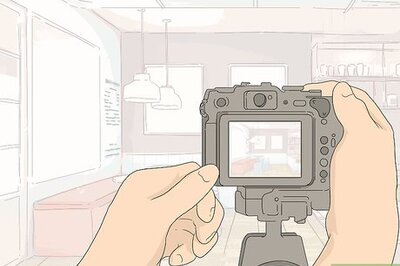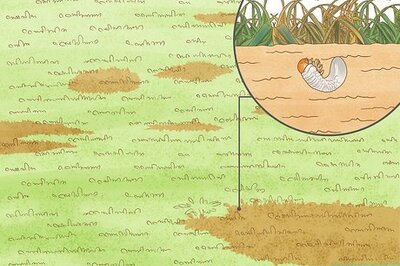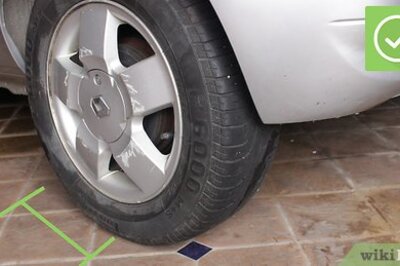
views
Sanaa: President Ali Abdullah Saleh was recovering from head wounds on Saturday, officials said, a day after an attack on his palace escalated a conflict that has brought Yemen to the brink of civil war.
Yemeni and Saudi officials dismissed reports on Arabiya TV that Saleh had left for neighboring Saudi Arabia, where six wounded officials, including the prime minister, have gone for medical treatment.
Global powers have been pressing Saleh to sign a Gulf-brokered deal to end his 33-year rule. Leaving Yemen, even for medical care, would make it hard for Saleh to retain power and could be seen as the first step in a transfer of leadership.
Four months into a bloody revolt, worries are mounting that Yemen, already on the brink of financial ruin and home to al Qaeda militants, could become a failed state that poses a threat to the world's top oil exporting region and to global security.
"Saleh is still in Sanaa," a Yemeni official told Reuters. A Saudi official also confirmed that Saleh was in Yemen.
"He had suffered minor wounds to his head and I believe his face," the Yemeni official said.
Seven people were killed in the palace attack and several government officials wounded, state media said, with Saleh blaming a tribal federation for the assault.
Saleh's forces retaliated by shelling the homes of the leaders of the Hashed tribal federation, which has been engaged in street fights with his forces. A spokesman for the group said 10 tribesmen were killed and dozens injured in the attacks.
"It's not easy for the president. He has lost people close to him and who were sitting next to him when it happened," the Yemeni official told Reuters.
Saleh has exasperated his former US and Saudi allies, who once saw him as a key partner in efforts to combat Yemen-based al Qaeda in the Arabian Peninsula (AQAP).
Defying world pressure, Saleh has thrice reneged on a deal brokered by Gulf states for him to quit in return for immunity from prosecution, even as he hemorrhages support at home.
Residents in Sanaa faced worsening fears after fighting between the Hashed tribal federation and Saleh's forces spread to new parts of the divided capital on Friday, prompting a fresh exodus of war-weary civilians.
Tensions in the flashpoint of Taiz, about 200 km south, eased after police and military units withdrew from the city following a week of clashes with pro-reform demonstrators that left dozens dead.
The UN human rights chief said her office was checking reports that some 50 people had been killed in Taiz since Sunday.
'Bullets everywhere'
Nearly 200 people have been killed in the capital in the past two weeks as street battles using machine guns, mortars and rocket propelled grenades shuttered shops and forced Sanaa's airport to ground flights twice.
Intermittent blasts and sporadic fire fights punctuated the predawn hours in Sanaa. Roads were clogged when the sun rose by civilians fleeing violence that has engulfed more of the city.
"Bullets are everywhere, explosions terrified us. There's no chance to stay anymore," said Sanaa resident Ali Ahmed.
Spain said it was evacuating its citizens and diplomats in Yemen, while Germany ordered the temporary closure of its embassy, adding to the number of countries shutting the doors on their diplomatic missions in Sanaa due to the fighting.
Saleh, 69, said in an audio address late on Friday that an "outlaw gang" was behind the attack.
Nearly 400 people have been killed since a popular uprising against Saleh began in January, inspired by the movements in Tunisia and Egypt that toppled their long-standing leaders.
The battles are being fought on several fronts, with popular protests in several cities and military units breaking away from Saleh to protect the protesters.
There has also been a nearly week-long campaign in Zinjibar by locals and Saleh's soldiers to oust Islamist and al Qaeda militants who seized the southern coastal city near a shipping lane where about 3 million barrels of oil pass daily.



















Comments
0 comment